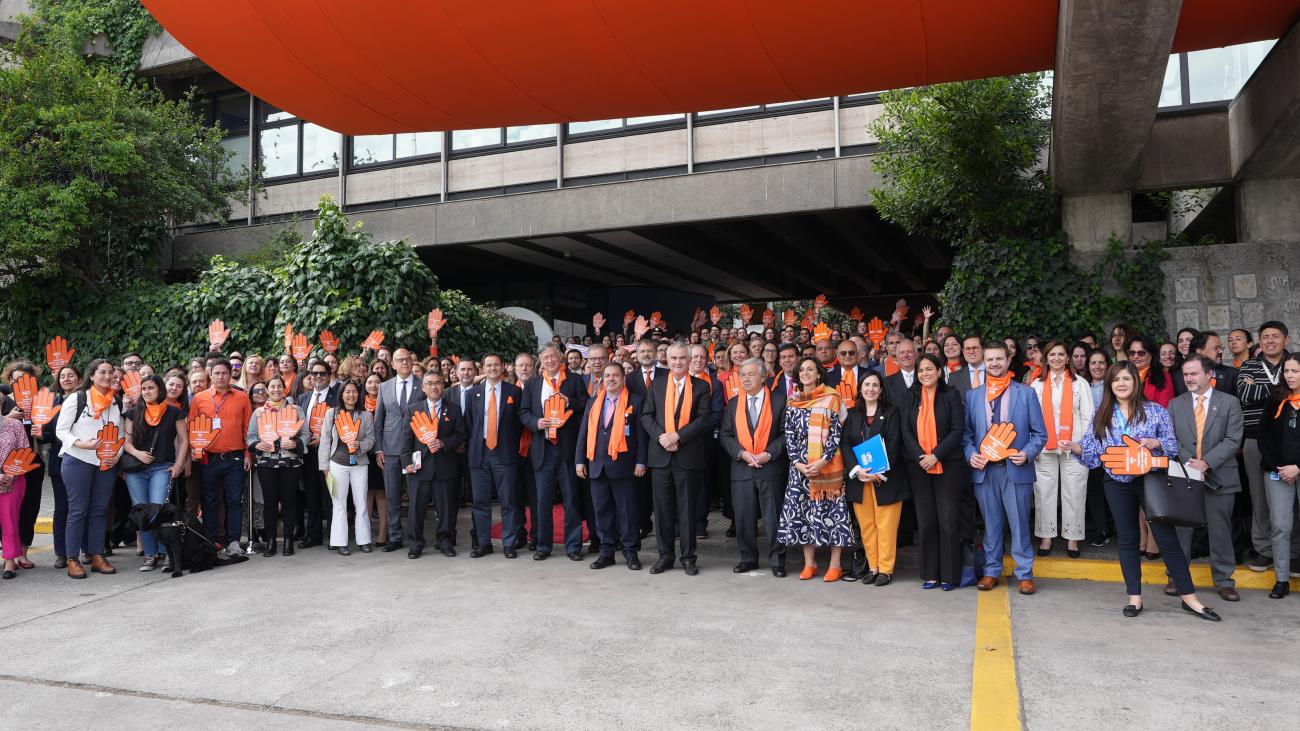At least 4,050 women were victims of femicide in Latin America and the Caribbean In 2022: ECLAC

Femicidal violence can be prevented with comprehensive and forceful state responses, says says the United Nations regional organisation.
In 2022, at least 4,050 women were victims of femicide (also known as feminicide) in 26 countries and territories of Latin America and the Caribbean, according to the latest data that official agencies reported to the Gender Equality Observatory for Latin America and the Caribbean (GEO) of the Economic Commission for Latin America and the Caribbean (ECLAC). This is equivalent to one gender-related killing of a woman every two hours in the region.
“It is not possible to identify an upward or downward trend in the rates of femicide or feminicide in each country, since the variations are small and do not reflect an increase or decrease in the problem,” ECLAC explains in a new report on this issue. However, the United Nations regional organization stresses, it can be affirmed that femicide persists in the region, despite greater public awareness, legislative advances, progress in the measurement of cases and the state response.
Of the 19 countries and territories in Latin America that reported the number of femicides or gender-related killings of women in 2022, the highest rates were seen in Honduras (6.0 per 100,000 women), the Dominican Republic (2.9) and El Salvador and Uruguay (1.6). The lowest rates (meaning less than 1 victim per 100,000 women) were observed in Puerto Rico and Peru (0.9), Colombia (0.8), Costa Rica (0.7), Nicaragua (0.5), Chile (0.4) and Cuba (0.3).
In the Caribbean, 46 women were victims of lethal gender violence in the seven countries and territories that provided information corresponding to 2022. The highest number of cases by far was in Trinidad and Tobago (43).
“We will not get tired of saying this: Latin America and the Caribbean has a duty to prevent and eliminate all forms of violence against women and girls. It is unacceptable that more than 4,000 women and girls are murdered each year in our countries on the basis of gender,” José Manuel Salazar-Xirinachs, ECLAC’s Executive Secretary, said just before the International Day for the Elimination of Violence against Women , which is commemorated each year on November 25 and launches 16 days of activism through to December 10, which is International Human Rights Day.
In the context of his official visit to Chile, the United Nations Secretary-General, António Guterres, participated in one of the commemoration and awareness-raising activities that ECLAC and the UN System in the country carry out each year in the framework of the UNiTE by 2030 to End Violence against Women campaign .
Launched in 2008, this initiative by the UN’s highest authority calls on governments, civil society, women’s organizations, young people, the private sector, media and the UN system to join forces to prevent and eliminate this true global pandemic. The theme this year is “UNITE! Invest to prevent violence against women and girls.”
Femicide is simply the most extreme expression of inequality, discrimination and the multiple forms of violence against women and girls, ECLAC reiterates. For example, according to specialized national surveys from 10 countries in the region, between 42% and 79% of women (around 2 out of every 3) have been victims of gender violence in different areas of their lives. In addition, on average, 1 in 3 women has been or currently is a victim of physical and/or sexual violence perpetrated by someone who was, or is, their partner, which entails the risk of lethal violence, according to the World Health Organization (WHO). This corresponds to 88 million women over 15 years of age in Latin America and the Caribbean. At the same time, early and forced child marriages and unions are a harmful practice and a manifestation of gender violence that persists and is widespread in the region, affecting 1 in 5 girls.
“Femicidal violence can be prevented with comprehensive and forceful state responses. Profound transformations are urgently needed to ensure that the women and girls of our region can live violence-free lives,” José Manuel Salazar-Xirinachs underscored.
More than 70% of the femicide victims in 2022 were between 15 and 44 years of age, according to the information provided by eight Latin American countries. However, 4% of them were under 15 and 8% were aged 60 or older.
In seven countries that reported to ECLAC, at least 400 children, adolescents and other dependents lost their mother or caregiver due to femicide in 2022. On this topic, it is important to note that only eight Latin American countries have created concrete reparation measures to support the dependents of femicide victims, which constitute a fundamental response in building a comprehensive approach.
To prevent femicidal violence, it is also necessary to strengthen data on the existence of prior complaints of violence or precautionary measures (such as restraining orders) that would allow for assessing risks and taking timely action, and thereby averting gender-related killings.
States in the region must increase budget allocations and invest to bolster policies against gender violence with new strategies for responding to the various manifestations of violence such as, for example, gender violence in digital media, ECLAC warns.
In the Buenos Aires Commitment – which was approved in 2022 and proposes a path for moving towards a care society – the region’s countries agreed to “promote the adoption and implementation of laws, policies, comprehensive and multisectoral action plans and educational awareness-raising programs to prevent, address, punish and eliminate all forms of gender-based violence and discrimination against women, adolescent girls and girls in all their diversity, in different areas and manifestations, including harmful practices such as female genital mutilation, child marriage and early unions.”
Moving towards a care society requires transforming patriarchal, discriminatory and violent cultural patterns, ECLAC emphasizes.
In sum, the Commission urges the region’s governments to redouble their efforts aimed at improving record-keeping and information systems; to increase budget resources for public policies that respond comprehensively to victims and survivors; and to invest in effective prevention, strengthening risk assessment and effective protection and reparation measures for victims, and their access to medical, psychosocial, legal assistance and other services, as well as to educational, economic and employment opportunities.
Finally, the Commission clarifies that current information on femicide victims does not enable the construction of a comparable time series for the region’s countries. Several countries have improved their femicide records though legal reforms, which has entailed methodological adjustments that prevent a strict comparison.
Written by




